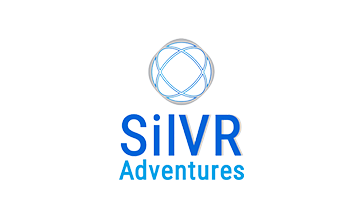Project summary
Deakin University in partnership with SilVR Adventures and Barwon Health has been awarded an ARIIA grant for their ‘Implementation of an innovative virtual reality experience for people living with mild dementia in residential aged care’ project.
This project will implement and evaluate innovative virtual reality experiences for residential aged care residents with mild dementia. The virtual reality experiences have been designed specifically for older people and provide the ability to go on a wide variety of virtual tours to places that may not be otherwise possible, e.g. a trip to the Eiffel Tower. The experiences can also be undertaken together in groups with others, enabling social interaction.
Loneliness and social isolation are significant challenges for those living in residential aged care and the COVID-19 pandemic has made this even more challenging. Reminiscing and story sharing activities have been shown to have a positive impact on those with mild dementia. The virtual reality experiences will be deployed at pilot scale to three residential aged care sites.
The feasibility of using the virtual reality experiences in residential aged care settings will be evaluated in this research project. The user experience in using the virtual reality experiences will also be evaluated, as well as quality of life and wellbeing outcomes.
Project outcomes
Background and Aims
Loneliness and social isolation are significant challenges for those living in residential aged care and the COVID-19 pandemic has made this even more challenging. Reminiscing and story-sharing activities have been shown to have a positive impact on those with mild dementia. We implemented and evaluated group virtual reality (VR) experiences for residential aged care residents with mild dementia. The VR experiences were designed and curated specifically for older people and provide the ability to go on a wide variety of virtual tours to places that may not be otherwise possible, e.g. a trip to the Eiffel Tower. This collaborative project aimed to evaluate group VR experiences for residential aged care residents with mild dementia. Specific objectives included:
- To assess the feasibility of using the VR experiences device by residents with mild dementia.
- To assess the residents’ experience of the VR intervention.
- To assess quality of life and wellbeing outcomes following implementation of the VR experience among participating residents
The project was conducted in two residential aged care facilities of Barwon Health, for approximately 100 residents per location. Study participants included facility managers and direct care personnel (including nurses, lifestyle co-ordinators and personal care workers), residents (including residents living with mild dementia) and care partners (including family members and/or nominated informal carers of residents).
What We Did
Before we implemented the VR experiences, we held a focus group with facility staff to understand the potential enablers and/or barriers to implementation of group VR experiences at the aged care facility. We also assessed residents’ perceptions of their quality of life by conducting a baseline survey. We then trained 14 facility staff in how to use VR devices to facilitate group VR experiences with the residents. We attended 35 group VR experiences held in the aged care facility, attended by 34 residents. We recorded observations on each resident’s engagement in activity, social interaction, physical effort, mood and agitation before, during and after the VR experience. A sample of residents and facility staff were then invited to provide feedback on the VR experiences by taking part in an interview (residents) or a focus group (facility staff). Residents who had completed the baseline quality of life survey were invited to complete the survey again.
Outcomes
- Significant increase in observed engagement levels and mood from before VR experience to during and after the VR experience.
- Significant reduction in observed agitation levels before and after the VR experience.
- Significant increase in observed social interaction after the VR experience.
- Significantly higher observed physical effort during VR experience.
- Significant increase in personal care and social activities after the VR experience.
- Significantly higher passive purposeful activities during the VR experience.
- Significant reduction in passive purposeless activities.
Impact on Aged Care and Workforce
The feasibility and impact of using the virtual reality experiences in residential aged care settings has been explored from the perspectives of both aged care residents and members of the aged care workforce. Aged care residents, including older people living with mild dementia, have had the opportunity to engage with cutting-edge technology, to provide feedback on their experience, and to make suggestions for the future use. The aged care workforce has also had the opportunity to engage with research towards improving the quality of life of residents living with dementia, and to build capacity for future research. The findings show that use of VR technology in older people living with mild dementia is feasible. Additionally, residents enjoyed the experience, and a number of positive outcomes were observed.
Resources
The residential aged care facility staff have been trained in use of the VR equipment and will retain ownership of the VR devices and other equipment following completion of the project.
Next Steps
The facility staff training and implementation of VR experiences in the residential aged care setting has been evaluated. The organisation has retained (and now owns) the VR equipment and has the option to initiate a future software licence to continue to engage with VR experiences. A full report has been provided to the organisation to inform future use of VR and further research.
Publication
https://link.springer.com/article/10.1007/s10055-025-01171-8


